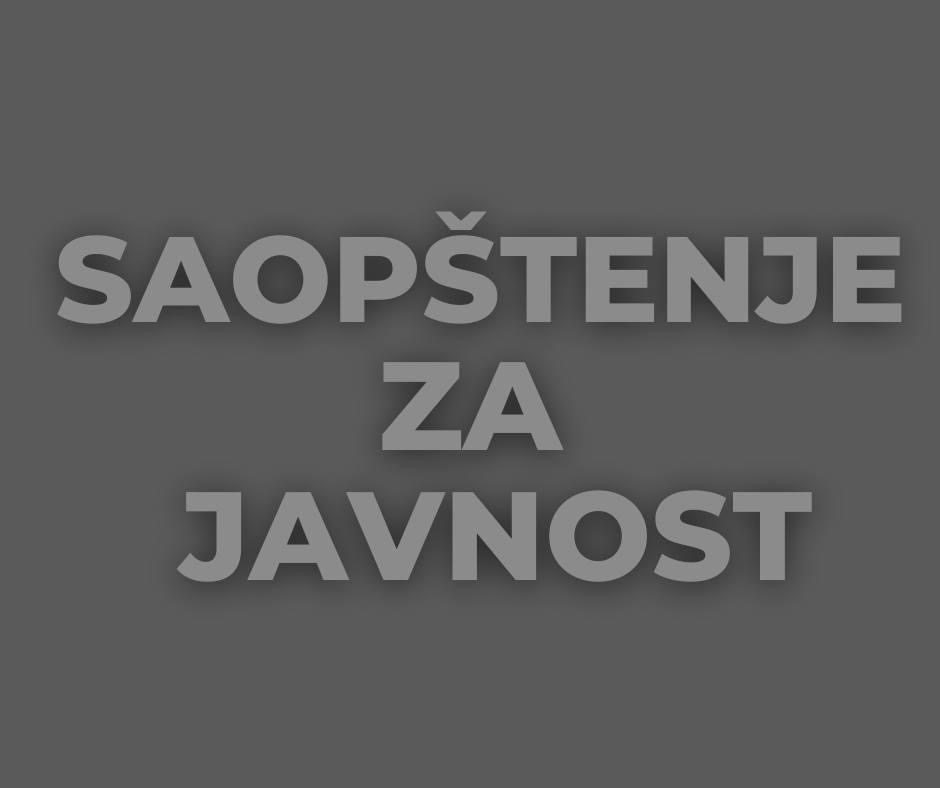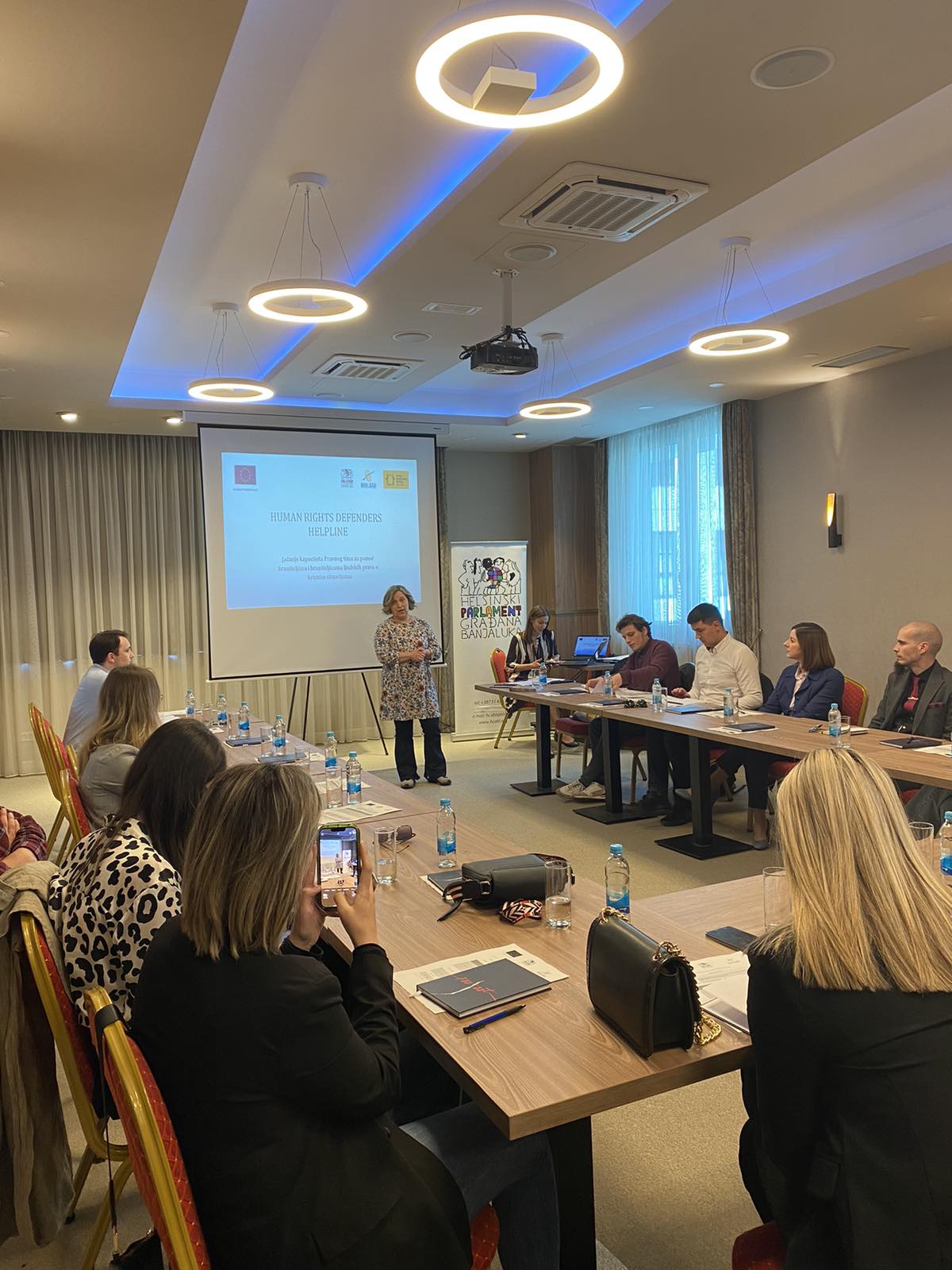As part of cooperation with journalists within the project “Citizens in the Fight against Silent Corruption”, we bring you a collaboration with the Capital.ba portal and a text on sexual extortion, with the title “Sexual Extortion is the Most Common in the Public Sector of Srpska”.
Sexual extortion in the workplace is one of the best-kept secrets of institutions, companies and various economic entities, it exists in all sectors, but it is never reported.
Its victims are invisible, they are almost exclusively women, very often divorced mothers with small children and young girls, who, in fear of losing their jobs, suffer violence for years without daring to report it.
This was shown by the analysis of the CAPITAL portal on the subject of “sextortion”, as this phenomenon has been called in recent years. Looking for answers to the questions of how frequent this type of violence is in our work environment, as well as how often such cases are reported and how they are resolved, we received devastating data that there are almost no reports, and that victims of sexual extortion are mostly pushed “under the carpet”.
The people we spoke with say that this type of extortion is present in all activities and areas in our society, especially in public administration, healthcare, as well as low-accumulative occupations in the real sector, such as the textile and leather industry. However, extremely few cases make it to the reporting stage, and even fewer come to light. Mostly, it is “resolved internally” or the victim is suggested to “put up with it” until the abuser leaves the position of power or she is forced to leave and change her workplace.
The Secretary of the Trade Union Administration, Milorad Mitrović, says that such information can only be obtained through the trade union, and that there is no official information, because these acts are almost never reported. He explains that out of 56 to 60 official and unofficial reports of harassment that the Trade Union Administration receives annually, only one to two have a sexual connotation. However, they are also soon withdrawn or resolved internally. Sexual harassment may show up in anonymous surveys, says Mitrović, but no one will report it openly.
“In the last two years, there have been four cases in healthcare and about five in public administration, all from a position of power, towards women. Two nurses from a health facility planned to report harassment by a doctor, but shortly after the announcement, they turned off their phones and social networks, and stopped all communication with us. Two reports were also filed against high-ranking executives. These were “solved internally”. At the same time, in the private sector there are almost no reports, or even initiatives to deal with these issues. No procedure has been formally initiated, which speaks of distrust in institutions at all levels,” explains Mitrović.
Sexual harassment, as he says can be based on vulgar comments towards the victim, sending messages and exerting pressure to agree to something, but also planning for the victim to meet alone with the abuser.
*****
A similar situation happened to a worker in the administration in Banja Luka, who was ordered by her direct supervisor to “go to the field” with him, and instead, he drove them in a company car to a motel outside the city.
“Up to that point he was very professional, he did not show any intentions or behave inappropriately. Believing that we were going to the field, I got into the car with him, and when we got to the motel, I did not understand what was happening. He was acting normal all the time. When we entered the motel, he headed for the rooms and did not answer anyone. Only then did it become clear to me what his intention was. I turned around, went to the restaurant and sat down. He came back, as if surprised, and asked why I was not going up. I made it clear that I was not going to the room with him and we went back to the office. Only after that did the hell and harassment at the workplace begin,” she said.
After some time, she says, she decided to report the problem to the general manager. She told him everything and received support, but also advice that it might be better to endure.
“He told me that I should “endure” somehow, because that chief is already old and will soon retire, but that if I decide to report, he will stand by me and support me. However, by then I already had enough problems, so I gave up,” she says.
According to Anica Ramić, president of the Association of Citizens “Stop Mobbing”, sexual harassment is one of the most common forms of gender-based violence in BiH, and includes unwanted verbal or non-verbal behaviors of a sexual nature that humiliate, embarrass and intimidate a person and violate their dignity.
According to Ramić, sexual harassment in the workplace occurs more often in public institutions and as many as 80 percent remain unreported.
****
Ramić points out that it is necessary to encourage the establishment of mechanisms for protection against sexual harassment at different levels, as well as employers to protect workers from sexual harassment.
“Trade Unions should have a proactive role in monitoring and responding to cases of sexual harassment in the workplace. Other institutions that provide public services, such as those that offer health and social care, should have mechanisms for the prevention of sexual harassment and the protection of female employees and beneficiaries,” says Ramić.
Danijela Radonjić, an arbitrator in the Agency for the Peaceful Resolution of Labor Disputes of the Republic of Srpska, also claims that “sextortion” is rarely reported and that she has not had any concrete reports in her practice.
“It used to happen that they reported abuse and that a part of it could be classified as sexual. I had a report in which the worker was not asked for a favor, but perfidious sexual words were directed at her. It was not even from a position of power because he was a janitor who needed to make the lawyer leave the firm so he could go home early,” says Radonjić.
The labor laws of the RS and FBiH contain anti-discriminatory provisions, says Radonjić, and prohibit sexual harassment. However, the provisions are not precisely defined, but judges and arbitrators know “roughly” what it is. It is important that it is about unwanted behavior or activities.
“At the level of BiH, there is a Law on Prohibition of Discrimination, where sexual extortion is subsumed under other forms of discrimination. In the RS, we have the Law on Protection from Harassment, where above mentioned is not explicitly stated, but we have, for example, a provision for sending explicit comments, which could come under that. False reports also happen, and you have to watch out for that,” says Radonjić.
Sexual harassment as a phenomenon is something that must be approached in a multidisciplinary manner, says Radonjić, and improving the legal regulations is only one of the ways.
“First of all, we must work on raising the awareness of workers, citizens, and managers. I personally held an education in a manufacturing company where a report of sexual harassment popped up in the anonymous reporting system. Some realized that it was not that, and in other situations it was confirmed,” she says.
When asked who a worker turns to when he/she experiences this type of violence, our interlocutors agree that these are the competent institutions and trade unions, but that it is clear from current practice that there is no confidence that they will receive adequate help.
They protect themselves from bullies by running away from the workplace, going on long-term sick leave, or doing everything to hide until the pressure stops. However, they say, many suffer. There is no system support or counseling.
****
This activity was implemented within the project “Citizens in the Fight against Silent Corruption” which is part of the wider program “Support to Citizens in the Fight against Corruption” implemented by CCI with the financial support of USAID. The content is the sole responsibility of the Helsinki Citizens’ Assembly Banja Luka and does not necessarily support the views of USAID or the United States Government.
****
Photo taken from the Capital.ba portal





